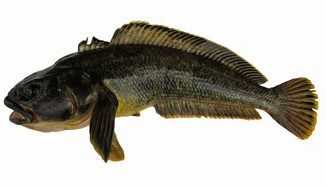

Toothfish, also known as Chilean seabass, is a low-calorie, high-protein food that can be enjoyed by dogs. However, toothfish may contain high levels of mercury which can be toxic to dogs when ingested in large amounts. It is best to keep its consumption to an occasional small treat.
Toothfish has several benefits for dogs, such as being low-calorie yet high in protein, essential for strong and healthy cells, muscles and tissues. They also provide omega-3 fatty acids, which are great for the heart and nerves.
Toothfish contain high levels of mercury, which can cause mercury toxicity in dogs when consumed regularly or excessively. Additionally, raw toothfish may contain bacteria and parasites, so they should not be served raw or uncooked.
Due to the high mercury levels found in toothfish, it is not recommended for dogs to eat Chilean seabass regularly or as a meal replacement. If you decide to share some toothfish with your pup, only do so occasionally in small amounts.
Toothfish, also known as Chilean seabass, is a type of white fish found in cold and sub-Antarctic waters. It is believed to have its origins in Chile, and is distributed in Australia, New Zealand, South Africa, and a few other nearby nations. Toothfish is low-calorie and high in protein, making it a great food for dogs in moderation. It also offers some beneficial omega-3 fatty acids that can help with the cardiovascular and neurological health of dogs.
Although toothfish may have some benefits for dogs, it comes with its own risks as well. Most notably, it contains high levels of mercury, which can be toxic when ingested in large amounts. Additionally, raw toothfish has the potential to contain bacteria and parasites, and therefore should not be served raw or uncooked. On top of this, it can be tricky to source toothfish, usually requiring some level of specialty vendors.
As with all new foods, if you’re interested in sharing some toothfish with your pup, it is best to do so occasionally in small amounts. If you’re looking for healthy alternatives, you could try serving other white fish such as tilapia or pollock, or salmon for some additional omega-3 fatty acids. Have you ever shared toothfish with your pup? What was their experience?
It is always important to be aware of the risks associated with any new food and to check with your veterinarian for any specific questions. We hope you and your pup have a happy and healthy experience with toothfish!